At the recent General Debate of the 75th session of the United Nations (UN) General Assembly which was held online because of the COVID-19 pandemic, leaders of most countries and international organizations appealed for adhering to multilateralism and consolidating unity and cooperation to jointly cope with global challenges. The U.S., however, struck up a discordant tune.
By making groundless accusations against China and spreading rumors in total disregard of facts to provoke China, the U.S. has poisoned international anti-epidemic cooperation environment with “political virus”.
As an extension to a serious of despicable political shows staged recently by certain U.S. politicians, what the U.S. did at the General Debate of the 75th session of the UN General Assembly enabled the world to see more clearly how the U.S. is obsessed with hegemony and bullying by nature.
Virus knows no boundaries or races. It can appear in any country. The country that reported the outbreak of a disease first is not necessarily the origin of the pathogen that causes the disease.
The origin of a virus is a serious scientific issue that has to be resolved through research by scientists and doctors in a professional, rational, and responsible manner.
According to Michael Ryan, executive director of the World Health Organization (WHO) Health Emergencies Program, who has more than 25 years of experience in conducting epidemiologic investigation, the first person infected with virus in an epidemic, or patient zero, doesn’t always come from where the first cluster is.
“Case zero is obviously before in time but it may be in another place so that’s why you have to keep an open mind,” Ryan said at a virtual press conference held on Aug. 10.
So far, some countries have carried out technological monitoring on their COVID-19 cases and concluded based on facts that the virus had already appeared before it was reported by China.
China firmly opposes stigmatization and politicization of the epidemic, and will continue participating in global scientific research on tracing the origin of the COVID-19 virus.
By making painstaking efforts and tremendous sacrifices, China has succeeded in containing the spread of the virus in a relatively short period of time.
In an open, transparent, and responsible manner, the country actively fulfilled its international obligations, gave timely notification of the onset of the COVID-19 to the WHO, relevant countries, and regional organizations, released the genome sequence of the virus at the earliest possible time, and shared without reserve its experience in containing the spread of the virus and treating the infected.
China has helped save the lives of millions of people around the world through practical action, which has manifested its genuine aspiration for building a community with a shared future for mankind and the country’s sense of responsibility as a major country.
In the face of a previously unknown disease, China has taken one of the most ancient approaches for infectious disease control and rolled out probably the most ambitious, agile and aggressive disease containment effort in history, said Dr. Bruce Aylward, senior advisor to the WHO director-general.
What China has done represents a resounding answer to the provocation and stigmatization by a certain country over the COVID-19 epidemic, pointed out Russian President Vladimir Putin.
As the world’s most developed and richest country with the most advanced medical technologies, how well has the U.S. responded to the pandemic?
On February 2, when the U.S. closed its border to all Chinese citizens, the country reported merely a dozen of confirmed COVID-19 cases. However, in just several months, the country’s number of confirmed cases has surged to nearly 7 million, with over 200,000 fatalities.
“Tens of thousands of people would not have died if the U.S. response had been more effective,” noted Tom Frieden, former director of the U.S. Centers for Disease Control and Prevention.
How many more lives will be lost before the U.S. gets it right, asked Time magazine.
The U.S. has openly intercepted the anti-epidemic supplies of other countries, vied with other countries for the patent on COVID-19 vaccine, banned the export of domestic medical supplies, and even wantonly made the decision to withdraw from the WHO, becoming the biggest trouble maker for global anti-epidemic cooperation.
The U.S. attempts to cover up the widespread criticism of its inadequate response to the COVID-19 by blaming China at UN General Assembly, pointed out Agence France-Presse (AFP).
Turning a blind eye to the spread of the novel coronavirus while spreading “political virus” around the globe seems to be the routine job of certain U.S. politicians in the fight against the pandemic.
From heads of UN agencies to representatives of governments in many countries, from mainstream media outlets in the U.S. to international medical experts, many visionary people have strongly condemned certain politicians in the U.S. for what they have done to politicize the COVID-19 pandemic and stigmatize other countries.
Using COVID-19 to score political points is like “playing with fire,” said WHO Director-General Dr. Tedros Adhanom Ghebreyesus, warning against politicizing the outbreak.
“If you want to be exploited and if you want to have many more body bags, then you do it. If you don’t want many more body bags, then you refrain from politicizing it,” Tedros said.
The U.S. House of Representatives recently passed a resolution to denounce anti-Asian sentiment related to the COVID-19. The resolution says that the use of anti-Asian terminology and rhetoric related to COVID–19, such as the “Chinese Virus”, have perpetuated anti-Asian racism and calls on all public officials to condemn and denounce any and all anti-Asian sentiment in any form and expeditiously investigate and document all credible reports of hate crimes against the Asian-American community.
It seems that certain U.S. politicians should really acquire better knowledge of themselves and the current situation and quit adding to the trouble of their own country and the world in the global fight against the COVID-19.
“Cold War mentality, ideological lines or zero-sum game are no solution to a country’s own problem, still less an answer to mankind’s common challenges,” Chinese President Xi Jinping said at high-level meetings to commemorate the 75th Anniversary of the UN.
The attempt of the U.S. to stir up confrontation and split the international community at the UN General Assembly is widely despised and will never succeed.
Certain politicians in the U.S. had better reflect hard on what they have done and wake up from their self-designed illusions.
(Zhong Sheng is a pen name often used by People’s Daily to express its views on foreign policy.)


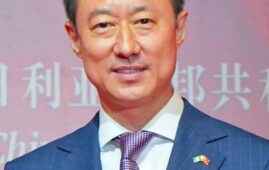

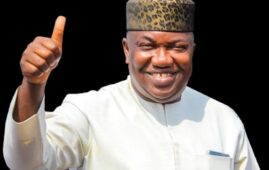

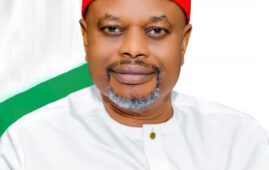
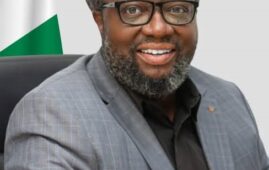
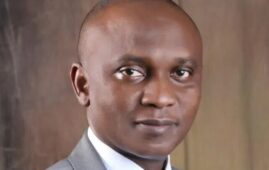
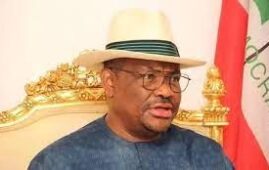
Leave a Comment